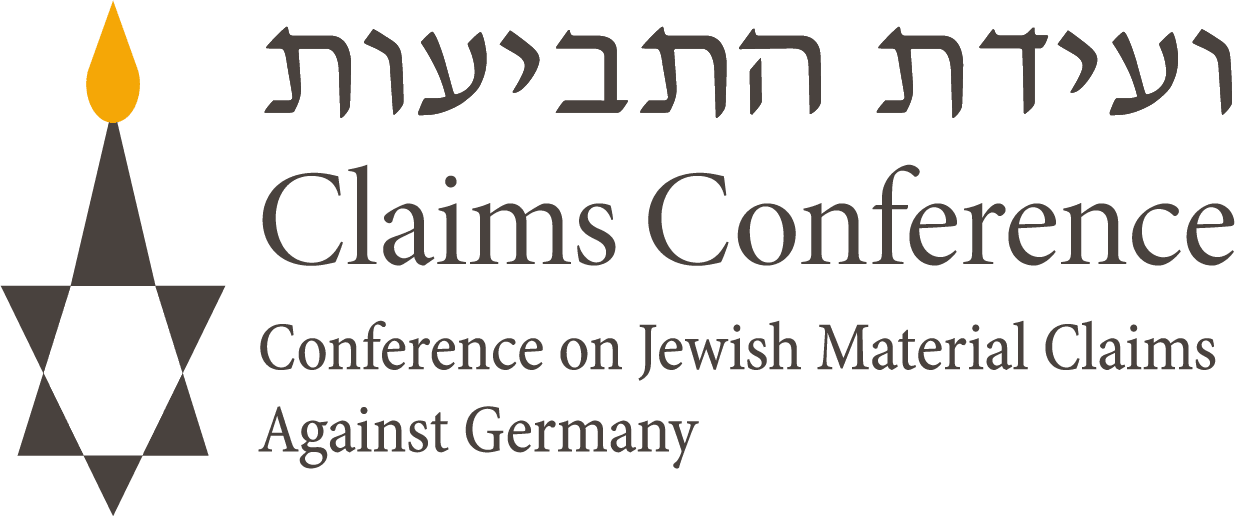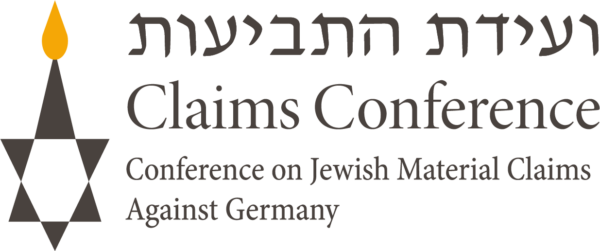Committee for Jewish Claims on Austria
In March 1938, there were approximately 182,000 Jews living in Austria. By May 1945, one-third of them (65,000) were murdered by the Nazis, while the rest had to flee, leaving all their belongings behind. Only very few managed to survive the war in Vienna. There are approximately 12,000 Austrian Jewish survivors alive today, of whom approximately 600 live in Austria.
The Claims Conference established the Committee for Jewish Claims on Austria in 1953 to secure compensation directly from Austria. Initial negotiations were not successful in part because Austria considered itself the first victim of Nazism, rather than acknowledging that a majority of Austrians welcomed and collaborated with the Third Reich. Austria subsequently agreed, after extensive negotiations with the Claims Conference, to a series of measures for the benefit of Nazi victims. In 1956, a Hilsfonds was established that provided one-time payments to Austrians who were persecuted for reasons of race, religion, nationality, and political conviction. It grew to a total of €115 million by 1976.
In 1961, the government created the Claims Fund for limited payments for loss of financial assets and for compensation for discriminatory taxes paid during the Nazi era. The Claims Conference also pressed for improvements to Austrian social welfare legislation granting benefits to Nazi victims, known as the Victims Assistance Law. In addition, Austria agreed to allow Austrian Jewish victims of Nazism born as late as December 31, 1932, to participate in the Austrian National Social Insurance System.
Austrian Holocaust Survivors Emergency Assistance Program
The Claims Conference makes annual allocations for the benefit of Austrian Jewish Nazi victims residing outside of Austria who are in need.
From 2004 through 2007, the Claims Conference allocated approximately $11.5 million from the Austrian Holocaust Survivor Emergency Assistance Program (AHSEAP). The funds derived from a settlement between Bank Austria and the Claims Conference and a 1990 Claims Conference agreement with the government to assist survivors. Distributed by local social service agencies around the world, the funds paid for items such as dental treatment, medical aids and treatment, and emergency care.
When funding expired in 2007, the Claims Conference negotiated successfully with the Austrian Ministry of Social Affairs to continue providing between €1.8 million and €2 million annually toward AHSEAP. In 2008, the agreement was jeopardized by the collapse of the Austrian government, but Claims Conference negotiations with the new Austrian government secured the continuation of funding of €1.8 million per year.
Since then, the Claims Conference has secured funding in the amount of €150,000 per month, negotiated on an annual basis. In June 2011, the Claims Conference negotiated an agreement at a rate of €167,500 per month for a period of 29 months. This proposed agreement will be for a total of €4.86 million from August 2011 through December 2013.
Austrian National Fund
In 1995, negotiations with the Claims Conference led to the Austrian National Fund for Nazi Victims, providing one-time payments of ATS 70,000 (€€5,087) to each victim of Nazi persecution in and from Austria. About 28,500 Austrian survivors worldwide, 80 to 85 percent of them Jewish, have received this original payment from the fund, for a total of €155 million.
Under the 2001 Washington Agreement signed with Austrian government and industry, each of the surviving former Austrian Jews was to receive $7,000 for loss of rental apartments, business leases, household furniture and/or personal belongings. As of April 2011, approximately 20,500 supplemental payments had been made, for a total of approximately $143.5 million.
In 2004, the Austrian parliament agreed to pay each recipient of the supplemental National Fund payment an additional €1,000. As of April 2011, approximately 19,000 of these payments had been made. Approximately 850 people are still due to be paid.
General Settlement Fund
The 2001 Washington Agreement provided for $210 million to be distributed through a General Settlement Fund (GSF) to cover claims for real estate, liquidated businesses, bank accounts, securities, mortgages, insurance policies, personal effects, and the losses of education and jobs.
The agreement also provided for Jewish communal and individual claims for restitution (in rem) of aryanized real estate and Jewish cultural items currently held by the government. The value of real estate restituted under this agreement totals approximately €41 million.
As of May 2011, 18,100 advance payments had been made. These advance payments are based on the awarded worth of the application and cover between 10 and 15 percent of its value. A total of approximately $155 million has been paid.
These advance payments have ceased as final payments have begun. As of May 2011, approximately 19,700 final payments have been paid, for a total of approximately $48 million.
Social Welfare Benefits
Since March 1, 2002, Austrian Holocaust survivors living abroad are entitled to the same nursing care payments as those living in Austria, and former Austrian Jews born between January 1, 1933, and March 12, 1938, are entitled to apply for an Austrian pension. Increased nursing payments totaling approximately $1 million per month are being made to 1,500 Jewish Austrian survivors. An additional 900 Austrian Nazi victims born between 1933 and 1938 and living outside of Austria receive a total of $280,000 in pension payments every month as a result of the agreement.
In 2009, the Austrian Parliament extended the legal social welfare regulations to include the ability to purchase pension years to every person who was born up until May 8, 1945, was persecuted within the territory of the Austrian Republic or lived under persecution in another country, and who had one parent officially residing in Austria on March 12, 1938. An estimated 400 survivors are entitled to receive pension payments under this agreement.
Claims Conference negotiations with the Austrian government played a key role in promoting this change to benefit Nazi victims born after the Anschluss.
Future Fund
The Austrian government established a Future Fund to commemorate and research the Shoah. It is funded by proceeds from a foundation that had been established in 2000 to compensate former slave and forced laborers who worked in Austria between 1938 and 1945, and has been operating since 2006. As of May 2011, 500 projects have been approved and approximately €10 million has been used.
The Claims Conference office in Vienna has been involved in choosing and defining projects of the Future Fund. It is anticipated that the fund will have paid out all its funds by 2016.
Looted Jewish Art
In 1986, the Claims Conference pressed for legislation to enable owners or heirs to claim stolen art items that had been stored by the Austrian government in the monastery in Mauerbach, near Vienna. In 1996, the Austrian government handed over unclaimed objects to the Federation of Austrian Jewish Communities. Their sale at auction that year, organized with the help of the Claims Conference, brought in $14.5 million and received international publicity. The Mauerbach fund has made more than 6,800 payments to needy victims of Nazi persecution in and from Austria.
The Claims Conference has been working for several decades in pressing Austria on the issue of Nazi-era looted art. In 2006, an initial list of art objects likely looted during the Nazi era and now in Austrian museums and public collections was posted on an Internet searchable database, enabling victims of Nazism and their heirs to search more easily for artworks stolen during the Holocaust. The database was established by the Austrian National Fund.
The art database contains information on 9,000 objects of art and on objects of cultural value that are located today in museums and in collections of the Republic of Austria or of the City of Vienna and which, according to current provenance research, are likely to have been expropriated during the Nazi era. Every object is listed with information regarding its restitution status.
Unclaimed looted art is to be returned to the National Fund. On June 1, 2010, the Austrian National Library symbolically handed over 8,363 books seized during the Nazi era and repurchased them for €135,000. Such proceeds are to be used by the National Fund to benefit Austrian Jewish victims of Nazism.

